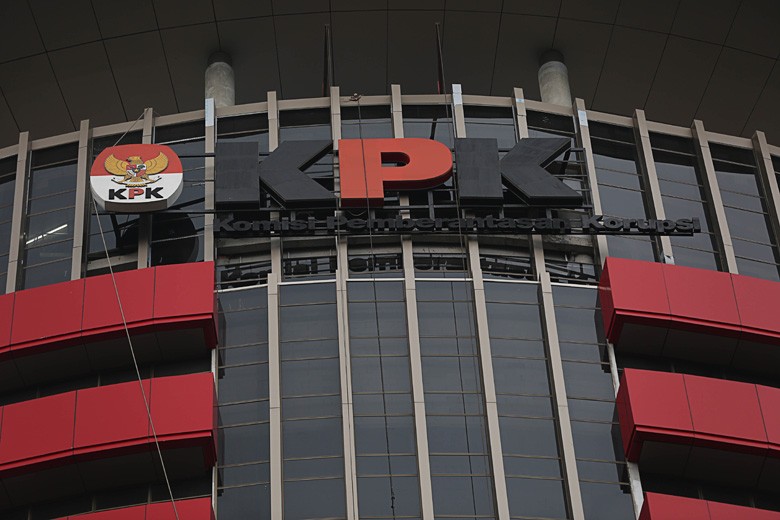Popular Reads
Top Results
Can't find what you're looking for?
View all search resultsPopular Reads
Top Results
Can't find what you're looking for?
View all search resultsKPK wants death for corruption convicts during COVID-19 outbreak
According to KPK chairman Firli Bahuri, the agency will be going for the maximum penalty allowed under the law.
Change text size
Gift Premium Articles
to Anyone
T
he Corruption Eradication Commission (KPK) wants the death penalty for people convicted of corruption during the COVID-19 outbreak, in a stark turnabout from its recent focus on prevention instead of actively pursuing investigations.
According to KPK chairman Firli Bahuri, the agency will be going for the maximum penalty allowed under the law.
With the government pouring Rp 62.3 trillion (US$3.9 billion) into nationwide measures to combat COVID-19 and launching social safety net programs, there are growing fears that much of that money could be embezzled.
“Remember that corruption during disasters is punishable by death,” Firli said in a press statement Saturday.
He invoked Article 2 of the 2001 Anticorruption Law, which states that the maximum penalty could be given under certain circumstances.
No corruption convict in Indonesia has ever been given the death sentence. The decision to mete sentences is in the hands of the court, which has to take into account mitigating circumstances.
Despite the government’s instructions last week for everyone to work from home, all KPK staffers, including investigators, will continue to work from their office in Kuningan, South Jakarta, Firli said.
When he landed the position of KPK chairman in December 2019, the police commissioner general vowed to work on preventing corruption and fostering better coordination with government institutions, which previously had been the target of many KPK investigations.
His new approach came with the new KPK Law enacted in October, which effectively took away much of the antigraft body’s independence and some of its more effective investigating tools, including wiretapping.
Among the major projects initiated is the conversion of Wisma Atlet Kemayoran in Central Jakarta into a hospital and using two small islands in Riau Islands province to accommodate thousands of COVID-19 patients.
Firli warned not to expect the KPK to conduct raids or sting operations to catch corruption suspects in the act, a method that proved effective in the past.
“We understand that many critics want to see KPK raids and they want results,” he said, taking note of the declining public trust in his agency as shown by several recent surveys.
“But we don’t conduct raids as a goal or a gimmick just to show that the KPK is working.” (mfp)










